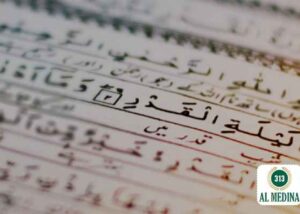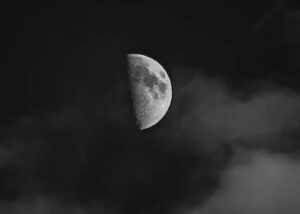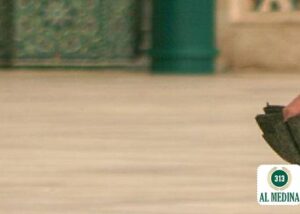Quran
Hadith
Islamic Text
You should recite اللهُمَّ إِنَّكَ تُحِبُّ الْعَفْوَ، فَاعْفُ عَنِّي (Allahumma innaka tuhibbul ‘afwa fa’fu ‘annee) during Laylatul Qadr.
عَنْ عَائِشَةَ، قَالَتْ: قُلْتُ: يَا رَسُولَ اللهِ، أَرَأَيْتَ لَوْ أَنِّي عَلِمْتُ لَيْلَةَ الْقَدْرِ، مَا كُنْتُ أَدْعُو بِهِ رَبِّي عَزَّ وَجَلَّ، أَوْ: مَا كُنْتُ أَسْأَلُهُ؟ قَالَ: قُولِي: اللهُمَّ إِنَّكَ تُحِبُّ الْعَفْوَ، فَاعْفُ عَنِّي
‘A’isha said, “I said, ‘Messenger of Allah, if I recognise the Night of Power, which supplication should I make to my Lord?’ He said, ‘Say: “O Allah, You are Pardoning and you love to pardon, so pardon me.’ (Allahumma innaka ‘afuwwun tuhibbul ‘afwa fa’fu ‘annee). (Ahmad 25505, Sahih).
It is important to note that we do not know which night Laylatu al-Qadr is for sure (see link below for details). Rather there are a number of possibilities. However, during those possible nights it is important to increase worship as much as one can manage.
In the Hadith narration above we find the Holy Prophet teaching Sayidah Aishah (May Allah Most High be pleased with her) a specific Dua for Laylatu al-Qadr. Therefore, we can say that Dua is what one should recite during Laylatul Qadr. However, one is not restricted to this particular Dua during Laylatu al-Qadr. Nor is one restricted to Dua alone, rather we are generally encouraged to worship. As seen in the following Hadith.
عَنْ أَبِي هُرَيْرَةَ قَالَ: قَالَ رَسُولُ اللَّهِ صَلَّى اللهُ عَلَيْهِ وَسَلَّمَ: مَنْ يَقُمْ لَيْلَةَ القَدْرِ، إِيمَانًا وَاحْتِسَابًا، غُفِرَ لَهُ مَا تَقَدَّمَ مِنْ ذَنْبِهِ
Abu Hurairah reported that the Messenger of Allah said, “Anyone who stands (for prayer) on the Night of Power motivated by belief and in anticipation of being rewarded will be forgiven his past wrong actions.” (Bukhari, 35).
Many people have a habit of spreading messages that identify particular acts of worship during Laylatu al-Qadr. Most of these have not been narrated in Quran or Hadith. Therefore, it is not permitted to specify them for Laylatu al-Qadr. One cannot say this is what you should do, recite or pray during the night of power (Laylatu al-Qadr) without specific evidence from Quran and Hadith. Otherwise one will be guilty of speaking on behalf of Allah Most High without evidence.
إِنَّمَا يَأْمُرُكُمْ بِالسُّوءِ وَالْفَحْشَاءِ وَأَنْ تَقُولُوا عَلَى اللَّهِ مَا لَا تَعْلَمُونَ
He (Shaytaan) commands you to evil and indecency, and to attribute to Allah that of which you have no knowledge. (Surah al-Baqarah, 169).
Therefore, any person specifying a particular act of worship for Laylatu al-Qadr must provide evidence. If they cannot do so then they must refrain. Rather, we should encourage people to worship on the night of power without specifying something not found in Quran and Hadith.
I am often asked what one should recite or pray during Laylatu al-Qadr. I respond by saying whatever you like, nothing is specified other than the Dua above. They tend to ask, what about all of these messages going round specifying particular Nafl prayers with specific Surahs. I respond by saying those are permitted as long as they do not contradict Sunnah. However, they should not be presented as specific to this night. Sometimes they ask about Salatu Tasabeeh. I say, you are permitted but it should not be considered to be a particular Sunnah for Laylatu al-Qadr.
And Allah Most High Knows Best.
-Answered by Shaykh Noorud-deen Rashid (19.04.2022)
See also:
See also (video):






